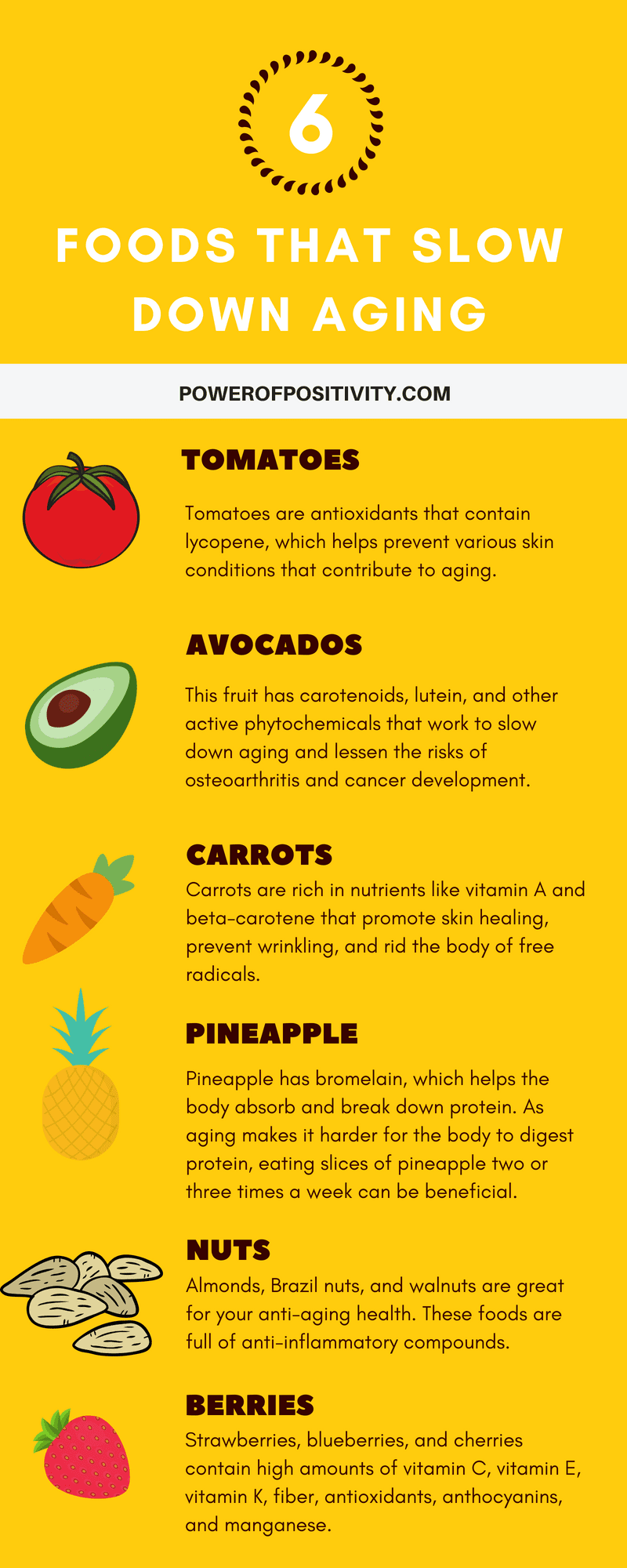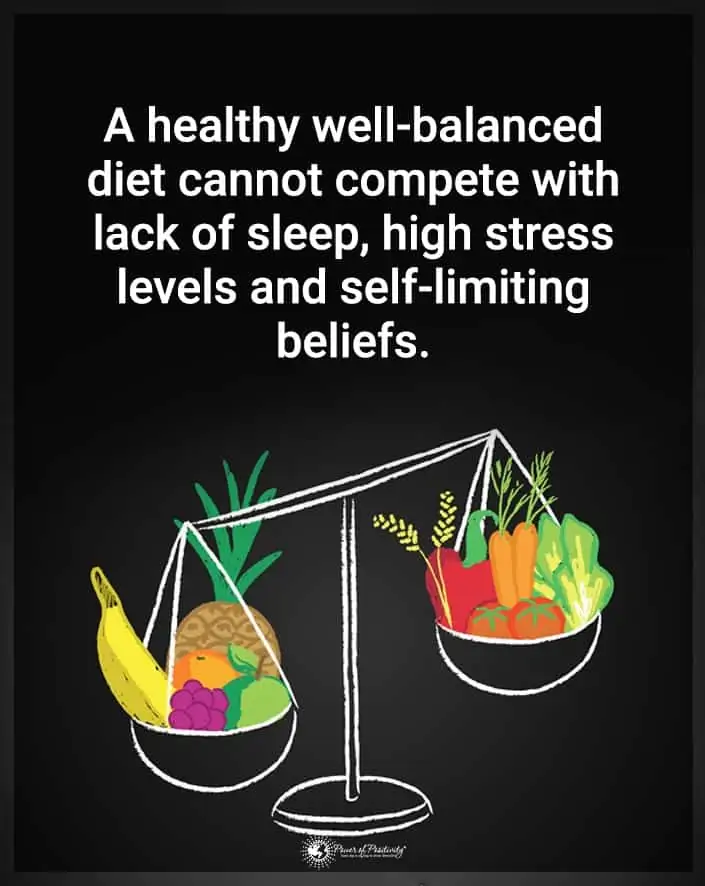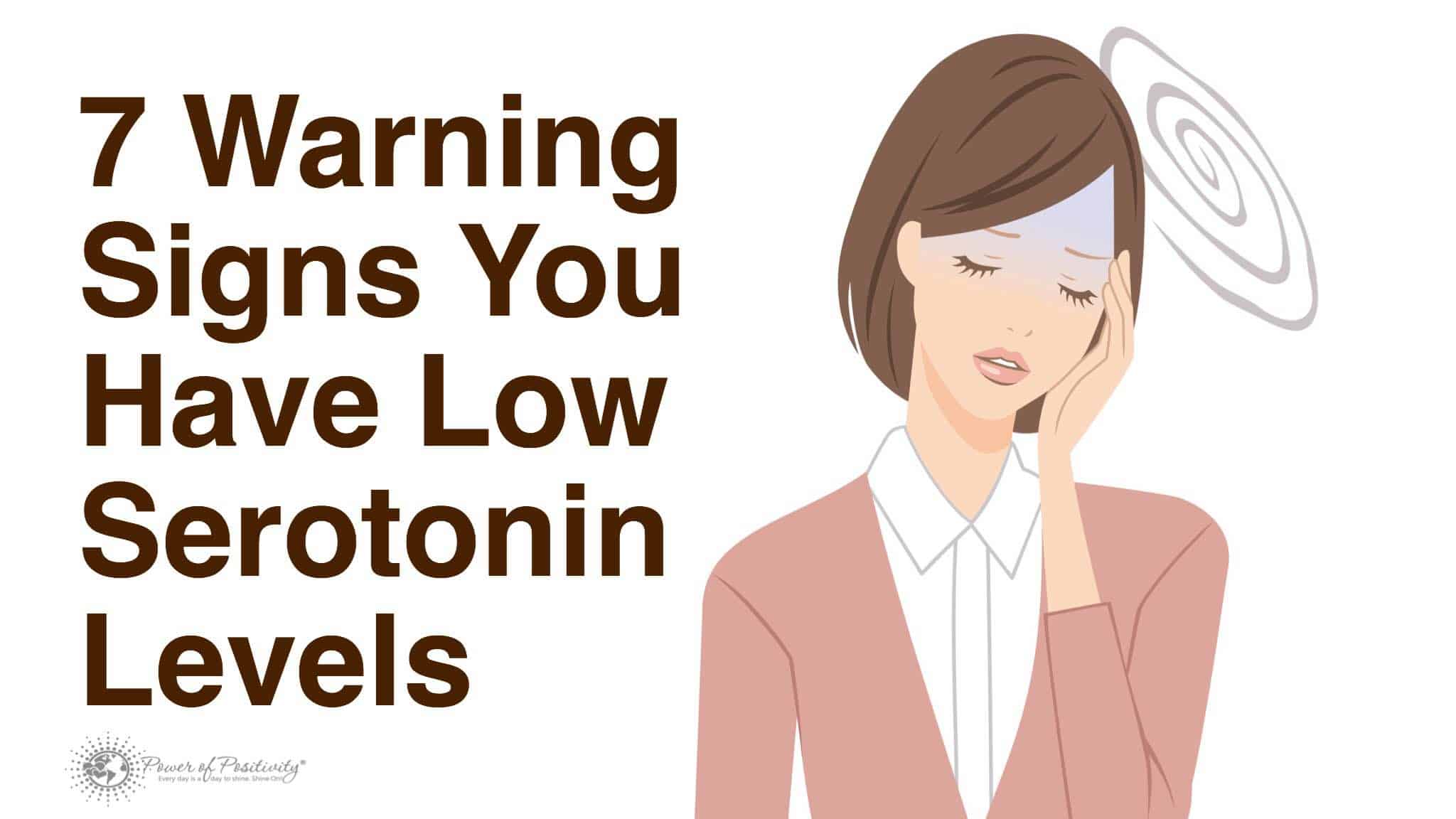Nobody stays young forever, but eating the right kinds of food will slow down the aging process! Yes, it’s true. There are certain foods that make women age slower. We’re all looking for that one magic pill that’ll help slow down the aging process. We buy expensive creams, do everything we can to remain young, but most of us don’t realize that there are foods that make women age slower. So, if you’re looking for some anti-aging miracle, you won’t find it in creams or pills, you’ll find it in these foods.
Here Are 25 Foods That Make Women Age Slower
“Let food be thy medicine and medicine be thy food.” – Hippocrates
- Almonds
Among the most commonly consumed nuts, almonds have the highest protein content. They’re also rich in copper, biotin, and vitamin E, which keep your hair, nails, and skin from looking aged.
- Apples
One medium-sized apple contains 17 percent of the daily fiber requirements your body needs. Apples also have a compound called quercetin that works against inflammation or body pain that makes you feel weak and old.
- Blueberries
Add blueberries to your breakfast or snack to help reduce your Alzheimer’s risk. This fruit protects your neurons from proteins that clump together in your brain cells.
- Carrots
At least half a cup of carrots daily can increase your body’s protection against inflammation that triggers arthritis. You don’t even have to cook carrots; you can crunch on a raw one. They’re so convenient to have in the kitchen.
- Cheddar cheese
If you’re worried about maintaining a sweet smile as you age, then snacking on cheese might help. Cheddar cheese apparently maintains the mouth’s pH levels. As a result, discoloration and cavity formation on the teeth is prevented, according to a study in General Dentistry.
- Cherries
Most age-related diseases arise from inflammation, but cherries can provide relief and reduce those body aches and pain. Cherries also have anthocyanin, which blocks enzymes that cause inflammation.
- Dark chocolate
Dark chocolate has loads of anti-aging benefits, but you must be sure to eat the type that has 70-percent cacao for best results. It also stimulates the hormone serotonin, which makes you feel young, happy and positive, as per a UC Berkeley study.
- Eggs
If you’re looking for super foods that make women age slower, your best bet is eggs! Aside from its high-protein content, eggs are a wonderful source of biotin, which keeps the nails from growing brittle as you age. Eggs also build bone strength.
- Grapefruit
Like oranges, grapefruits contain loads of vitamin C that helps protect the skin from premature aging. One grapefruit is rich enough to deliver the body’s recommended daily vitamin C needs.
- Green Tea
Wonder why older Japanese women have a longer lifespan? Apparently, they enjoy drinking green tea a lot. This drink contains high amounts of polyphenols that can block cholesterol buildup in the arteries, thus preventing the development of vascular diseases. Green tea also fights off inflammation, improves the elasticity of the skin, and limits wrinkle development.
- Kale
Kale is among foods that make women age slower. Its vitamin K content can help slow down cognitive decline in older women, as per a study conducted by experts at Rush University Medical Center. Those who ate at least two servings of kale daily improved their cognition as significantly as if their brain function was 11 years younger.
- Lentils
Lentils are rich in vitamin B9, which the body needs to prevent the hair from going gray. Add lentils to salads and soups for a yummy and textured dish.
- Milk
You need lots of calcium and vitamin D for strong bones and teeth. Well, milk is definitely one of the richest sources of these nutrients. To ward off brittle bone and osteoporosis, a common condition that affects women, drink at least three glasses of milk a day.
- Oranges
Soccer moms love preparing oranges for their kids a lot and they could be on to something. Oranges are rich in vitamin C and beta-carotene, which have great anti-aging properties. Oranges also aid in the oxidation of bad cholesterol that might cause blockages in the arteries, so it’s also good for the heart.
- Oysters
Oysters are rich in zinc and vitamin A, which are nutrients essential to the health of the eye. A diet rich of zinc can prevent macular degeneration in older adults, according to experts at the National Eye Institute.
- Salmon
Salmon is rich in omega-3 that will increase good cholesterol content in your body. It also reduces the blood clots in your arteries and thus lower the risks of heart attack, as per a study in the journal Lipids.
- Sardines
Bone-building is crucial as a women age. Eating sardines regularly will keep the bones stronger because this food is rich in vitamin D and calcium.
- Shiitake mushrooms
Worried about the premature graying of your hair? You could be deficient in copper. But if you eat a cup of shiitake mushrooms daily, you can reverse this aging process.
- Spinach
Spinach, one of the superfoods, has high amounts of folate and omega-3. A cup of fresh spinach or half a cup of cooked spinach can do wonders for your body against age-related diseases.
- Strawberries
Like other red and dark fruits, strawberries contain polyphenols, so here’s another great anti-aging food to indulge in for breakfast or desserts.
- Sweet potatoes
Bring back the luster to your skin and maintain your youthful looks by eating sweet potatoes daily. This food has loads of carotenoids. If you eat at least half a medium-sized sweet potato boiled or baked, you get at least 200 percent the daily allowance of carotenoids your body needs.
- Tomatoes
A popular staple in Mediterranean diet, tomatoes can boost your skin’s appearance because it’s an antioxidant and it’s rich in carotenoids too.
- Walnuts
Snacking on walnuts isn’t only delicious, this food is also packed with antioxidants and omega-3 that prevents heart disease development. Ideally, eating about a handful of walnuts every day can decrease heart attack risks by 40 percent, according to a study found in BMC Medicine.
- Whole grains
Swap foods that use refined grains as ingredients, such as white bread or pasta. Instead, go for foods that use whole grains. Refined grains could cause your sugar levels to increase, which isn’t good for your overall health.
- Yogurt
A cup of plain yogurt has all the calcium your body needs for the day. Yogurt is also a probiotic, which balances the health of your gut and protects your body against cancer.

Final thoughts
Positive thinking itself isn’t enough because women of a certain age have to embrace a healthier diet to better manage (or prevent) the development of health problems. Keep these foods that make women age slower on your grocery list and your weekly menu in order to enjoy a fuller, longer life with family and friends.



 1. Chest Pain, But Not Always
1. Chest Pain, But Not Always 6. Nausea Or Vomiting
6. Nausea Or Vomiting Final Thoughts on Telltale Symptoms of Heart Attack in Women According to a Cardiologist
Final Thoughts on Telltale Symptoms of Heart Attack in Women According to a Cardiologist





